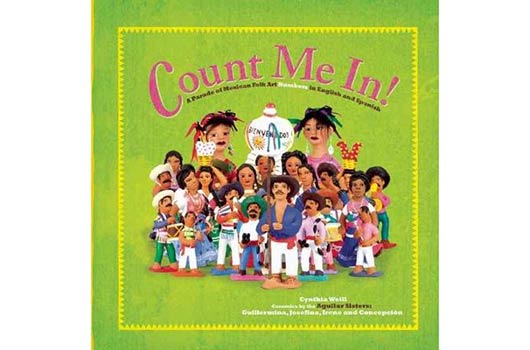
Spending the summer reading might not be the vacation fantasy of every teen. But spend the summer reading and win a free tablet? It just got interesting! Monica Olivera and Viviana Hurtado, the dynamic women behind Latinas 4 Latino Literature (L4LL) are on an all-out media blitz to spread the word about L4LL’s Latino Summer Reading Program and in particular, their Young Adult Challenge. Teens 12-18 are challenged to read eight books this summer, and then create and post a video book report of one of the books they’ve read. Once they’ve posted their video, they’re entered to win one of 10 Chromebooks and 10 Nexus 7 tablets donated by contest sponsor Google. Now that’s some incentive to crack open a book or eight!
We interviewed Olivera and Hurtado about the motivations for the Latino Summer Reading Program and the Young Adult Challenge, and they had plenty to share with us!
Mamiverse: The mission of L4LL is to get and keep Latino kids reading. Do you think the need to promote and nurture reading is greater in the Latino community than in non-Latino communities?
O & H: Definitely. Latino students consistently come in last when it comes to literacy. Many Latino parents don’t realize the influence and role they play when it comes to their child’s literacy development. But we understand that Latino parents want their children to succeed academically and be literate, they just don’t always know how to help their kids. Our goal is to equip Latino parents with the tools and resources they need to become active role models and savvy teachers for their kids, as well as advocates for their children’s literacy.
Read Related: Improving Latino Children’s Literacy
Mamiverse: For the contest, you provide a list of suggested, but not mandatory books. Do the books have to be Latino-themed/Latino authors?
O & H: No. We just want to get kids reading. But we do encourage Latino families to find and purchase these books, or ask for them at their local libraries because we understand that Latino children need to see their own faces reflected in the books they are reading so that they will be inspired to follow their dreams and write their own life stories.
Mamiverse: Is the emphasis on kids reading books in both Spanish and English, or bilingual books?
O & H: Our emphasis is on getting kids reading books that they enjoy and with which they are comfortable, be it books in English, books written in English with Spanish words embedded, or books written in Spanish. We also want to promote Latino children’s literature for a number of reasons. First, we think our kids deserve the right to read about other children who are like them and share similar experiences. Second, we want parents to get involved in reading to their children and we understand that they are more likely to read a book to their child that is written in the language they are most comfortable reading, as well as books to which they can relate. Third, we believe it is important for bilingual children to also be biliterate and able to read and write fluently in both languages.
Mamiverse: If a child is not reading bilingually by the time he reaches his teens, is it too late?
O & H: Not necessarily. As long as they are already bilingual, becoming biliterate as a teen shouldn’t be so difficult. Children who read well in their dominant language tend to find learning to read in a second language easier because they transfer the skills they’ve learned to reading in the second language. However, it is critical for bilingual students to take classes in reading and writing in both languages because otherwise, you don’t achieve biliteracy. I (Monica) can speak Spanish and read it well enough, but I cannot write in Spanish because I have never been trained and I make a lot of mistakes. That is one of my biggest regrets, not taking a Spanish for Heritage Speakers when I was in high school or college.
Mamiverse: Why a contest specifically for young adults/teens? Is this an age when kids are prone to read less?
O & H: According to the The National Assessment of Educational Progress, the percentage of 17 year olds reporting that they never or hardly ever read for fun rose from 9% to 19% between 1984 and 2004. In addition, NAEP says the number of teens who said they read daily dropped from 31% to 22%.
Honing literacy skills in high school is a definite must. Colleges and universities will be looking at the communication skills of the students applying to enter. Creating a video book review is an asset to these students and one they can add to their application. In addition, we want Latino teens to actively seek out at least one title by a Latino author for the exposure to this genre. We believe that reading books about Latino characters has many benefits for Latino students, and helps them to understand that their stories matter.
Mamiverse: Parents often find it’s hard to get their teen to do anything—especially in the summertime—much less read a book. What are your tips to keep teens enthusiastic about reading?
O & H: The top three ways to keep teens enthusiastic about reading that come to our minds are:
- Utilize technology. Download eBooks and let your child read them using their tablets.
- Make it interest-based. Buy your teen books on the topics she’s interested in.
- Use incentives. How about an extra 30 minutes added to her curfew? Or what about a special night serving his favorite meal?
Mamiverse: What is your assessment of the current crop of Latino literature for teens? Are there enough choices, and enough to appeal to different age groups?
O & H: With only 1.5 % of children’s literature being written by or about Latinos each year, I can say that no, there are not enough choices available for the different age groups. While there are some great books that have been recently published for teens, this genre needs some heavy investment by publishers to create a collection of titles that appeal to Latino teens and represent the diversity of their experiences.
Mamiverse: What strengths are you looking for in the video book reports? What are the qualities of a winning video?
O & H: We’re looking for students who have obviously read the book and can articulate their opinion clearly. The main goal of this video book review is to make sure the kids read at least one Latino literature title this summer. But it’s also to help them create additional content for their college applications.
Mamiverse: Tell us a little about the “media blitz” you’re engaged in to promote the Summer Reading Program.
O & H: L4LL’s media blitz is based in the simple Spanish saying, Qué corra la voz del pueblo or spread the news by word of mouth. That comes easy to us because of our established online credibility in the community through our individual blogs and social media which is also where Latinos as information consumer are—we over-index or embrace technology, specifically social media, blogs, and mobile devices at higher rates. Our social, new, and traditional media blitz is important so as many Latino children and their parents know and take advantage of our innovative and free summer reading program.
To enroll your child in L4LL’s Summer Reading Program and the Young Adult Challenge, and to learn more about L4LL, visit their website.











